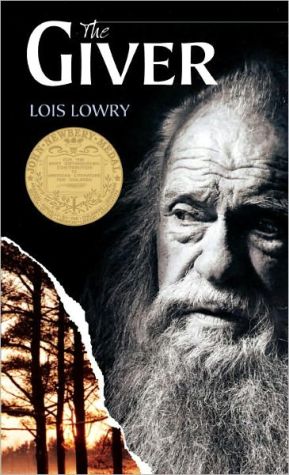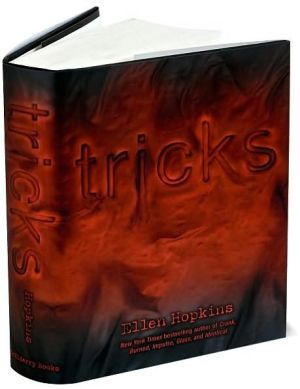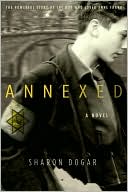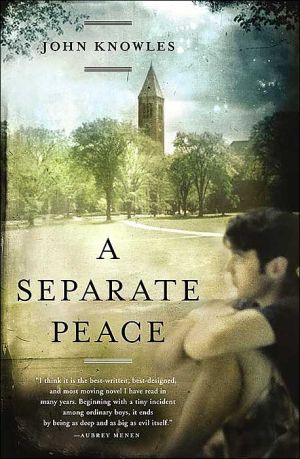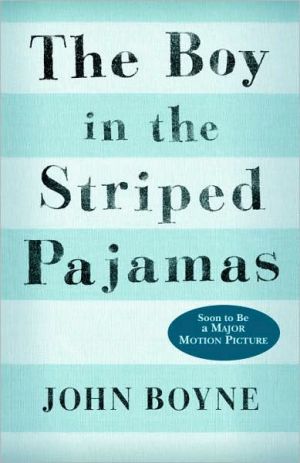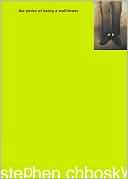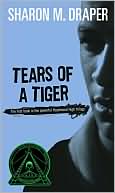We Were Here
The story of one boy and his journey to find himself.\ When it happened, Miguel was sent to Juvi. The judge gave him a year in a group home—said he had to write in a journal so some counselor could try to figure out how he thinks. The judge had no idea that he actually did Miguel a favor. Ever since it happened, his mom can’t even look at him in the face. Any home besides his would be a better place to live.\ But Miguel didn’t bet on meeting Rondell or Mong or on any of what happened after...
Search in google:
The story of one boy and his journey to find himself.When it happened, Miguel was sent to Juvi. The judge gave him a year in a group home—said he had to write in a journal so some counselor could try to figure out how he thinks. The judge had no idea that he actually did Miguel a favor. Ever since it happened, his mom can’t even look at him in the face. Any home besides his would be a better place to live.But Miguel didn’t bet on meeting Rondell or Mong or on any of what happened after they broke out. He only thought about Mexico and getting to the border to where he could start over. Forget his mom. Forget his brother. Forget himself.Life usually doesn’t work out how you think it will, though. And most of the time, running away is the quickest path right back to what you’re running from.Publishers WeeklyWhen Miguel, a high school student from Stockton, Calif.—“where every other person you meet has missing teeth or is leaning against a liquor store wall begging for change to buy beer”—commits an undisclosed crime, he is sentenced to a year in juvenile hall. Despite the efforts of his counselor (who constantly calls him “bro”), a despondent Miguel suffers alone at the group home, reading and scribbling in his journal; his entries provide the novel's narrative. When Mong, a violent fellow resident, plans an escape to Mexico, Miguel and his roommate, Rondell, join him on a tumultuous journey through Southern California and slowly become friends, as Miguel struggles to come to terms with the events that have brought him to this point (“Nah, man, there ain't no such thing as peace no more. That shit's dead and buried”). Miguel's raw yet reflective journal entries give Peña's (Mexican WhiteBoy) coming-of-age story an immersive authenticity and forceful voice. The suspense surrounding the boys' survival and the mystery of Miguel's crime result in a furiously paced and gripping novel. Ages 14–up. (Oct.)
May 13\ Here’s the thing: I was probably gonna write a book when I got older anyways. About what it’s like growing up on the levee in Stockton, where every other person you meet has missing teeth or is leaning against a liquor store wall begging for change to buy beer. Or maybe it’d be about my dad dying in the stupid war and how at the funeral they gave my mom some cheap medal and a folded flag and shot a bunch of rifles at the clouds. Or maybe the book would just be something about me and my brother, Diego. How we hang mostly by ourselves, pulling corroded-looking fish out of the murky levee water and throwing them back. How sometimes when Moms falls asleep in front of the TV we’ll sneak out of the apartment and walk around the neighborhood, looking into other people’s windows, watching them sleep.\ That’s the weirdest thing, by the way. That every person you come across lays down in a bed, under the covers, and closes their eyes at night. Cops, teachers, parents, hot girls, pro ballers, everybody. For some reason it makes people seem so much less real when I look at them.\ Anyways, at first I was worried standing there next to the hunchback old man they gave me for a lawyer, both of us waiting for the judge to make his verdict. I thought maybe they’d put me away for a grip of years because of what I did. But then I thought real hard about it. I squinted my eyes and concentrated with my whole mind. That’s something you don’t know about me. I can sometimes make stuff happen just by thinking about it. I try not to do it too much because my head mostly gets stuck on bad stuff, but this time something good actually happened: the judge only gave me a year in a group home. Said I had to write in a journal so some counselor could try to figure out how I think. Dude didn’t know I was probably gonna write a book anyways. Or that it’s hard as hell bein’ at home these days, after what happened. So when he gave out my sentence it was almost like he didn’t give me a sentence at all.\ I told my moms the same thing when we were walking out of the courtroom together. I said, “Yo, Ma, this isn’t so bad, right? I thought those people would lock me up and throw away the key.”\ She didn’t say anything back, though. Didn’t look at me either. Matter of fact, she didn’t look at me all the way up till the day she had to drive me to Juvenile Hall, drop me off at the gate, where two big beefy white guards were waiting to escort me into the building. And even then she just barely glanced at me for a split second. And we didn’t hug or anything. Her face seemed plain, like it would on any other day. I tried to look at her real good as we stood there. I knew I wasn’t gonna see her for a while. Her skin was so much whiter than mine and her eyes were big and blue. And she was wearing the fake diamond earrings she always wears that sparkle when the sun hits ’em at a certain angle. Her blond hair all pulled back in a ponytail.\ For some reason it hit me hard right then—as one of the guards took me by the arm and started leading me away—how mad pretty my mom is. For real, man, it’s like someone’s picture you’d see in one of them magazines laying around the dentist’s office. Or on a TV show. And she’s actually my moms.\ I looked over my shoulder as they walked me through the gate, but she still wasn’t looking at me. It’s okay, though. I understood why.\ It’s ’cause of what I did.\ June 1\ I’ll put it to you like this: I’m about ten times smarter than everyone in Juvi. For real. These guys are a bunch of straight-up dummies, man. Take this big black kid they put me in a cell with, Rondell. He can’t even read. I know ’cause three nights ago he stepped to me when I was writing in my journal. He said: “Yo, Mexico, wha’chu writin’ ’bout in there?”\ “Whatever I wanna write about,” I said without looking up. “How ’bout them apples, homey?”\ He paused. “What you just said?”\ I shook my head, told him: “And Mexico’s a pretty stupid thing to call me, by the way, considering I’ve never even been to Mexico.”\ His ass stood there a quick sec, thinking about what I’d just said to him—or at least trying. Then he bum-rushed me. Shoved me right off my chair and onto the ground, pressed his giant grass-stained shoe down on my neck. He said: “Don’t you never talk like that to Rondell again. You hear? Nobody talk to Rondell like that.”\ I tried to nod, but he had my neck pinned, so I couldn’t really move my head. Couldn’t make a sound either. Or breathe too good.\ He swiped my journal off the table and stared at the page I was writing, his kick weighing down on my neck. And I’m not gonna lie, man, I got a little spooked. Rondell’s a freak for a sixteen-year-old: six foot something with huge-ass arms and legs and a face that already looks like he’s a grown man. And I’d just written some pretty bad stuff about him in my journal. Called him a retarded ape who smelled like when a rat dies in the wall of your apartment. But at the same time I almost wanted Rondell to push down harder with his shoe. Almost wanted him to crush my neck, break my windpipe, end my stupid-ass journal right then and there. I started imagining the shoe pushing all the way through, rubber hitting cement. Them telling my moms what happened as she stood with the phone cupped to her ear in the kitchen, crying but at the same time looking sort of relieved, too.\ After a couple minutes like that—Rondell staring at the page I’d been writing and me pinned to the nasty cement floor of our cell—he tossed the journal back on the table and took his foot off my neck.\ And that’s how I knew he couldn’t read. Dude was staring right at the sentences I’d just written about him, right? And he didn’t do nothin’. Just hopped up on his bunk, linked his fingers behind his head and stared at the paint-chipped ceiling.
\ Children's Literature\ - Michele C. Hughes\ Keeping a court-ordered journal, Miguel records his journey through the juvenile criminal justice system for a crime he refuses to forgive himself for or even think about. He begins in a juvenile detention center surrounded by intimidating characters, including Rondell, an unintelligent boy who quickly asserts his might over Miguel. It comes as somewhat of a relief to Miguel when he is sentenced to a group home, where his peers seem more benign, all except violent and unpredictable Mong, with his odd cheek scars and his crazy eyes. Miguel is surprised and anxious to be reunited with Rondell in the group home, where they find an unexpected equilibrium. After asserting himself as aloof, independent, and brave, Miguel gains Mong's acceptance, and together they escape to Mexico, joined by Rondell. With a wad of money and their case files stolen from their well-meaning counselor, they slowly make their way down the California coast toward Mexico. At the Mexican border, Miguel grapples with a decision about whether he can accept the possibility of his redemption. These teens do not just talk differently, they think differently, evidenced by Miguel's journaling about crying, sex, and power. Their journey is not for the faint-hearted—it offers a glimpse into the psyche and circumstances of teens who might otherwise be defined by their case files. The plot offers several unforeseen turns, which accentuate the differences between the reader's choices and the boys'. The language reflects Miguel's cultural slang. Over the course of the book, Miguel's growth seems entirely plausible, as he aims for a better version of himself rather than a Boy Scout, and that is what makes him both sympathetic and real. Reviewer: Michele C. Hughes\ \ \ \ \ Publishers WeeklyWhen Miguel, a high school student from Stockton, Calif.—“where every other person you meet has missing teeth or is leaning against a liquor store wall begging for change to buy beer”—commits an undisclosed crime, he is sentenced to a year in juvenile hall. Despite the efforts of his counselor (who constantly calls him “bro”), a despondent Miguel suffers alone at the group home, reading and scribbling in his journal; his entries provide the novel's narrative. When Mong, a violent fellow resident, plans an escape to Mexico, Miguel and his roommate, Rondell, join him on a tumultuous journey through Southern California and slowly become friends, as Miguel struggles to come to terms with the events that have brought him to this point (“Nah, man, there ain't no such thing as peace no more. That shit's dead and buried”). Miguel's raw yet reflective journal entries give Peña's (Mexican WhiteBoy) coming-of-age story an immersive authenticity and forceful voice. The suspense surrounding the boys' survival and the mystery of Miguel's crime result in a furiously paced and gripping novel. Ages 14–up. (Oct.)\ \ \ VOYA\ - Rollie Welch\ De la Pena again creates an authentic story about teens existing on the lower fringes of society and the issues they confront. Miguel Castaneda narrates his story in journal format, beginning with his first hours in a juvenile home called Lighthouse. Readers are not given insight into Miguel's crime until much later in the story, but early on, they learn that it involves his older brother Diego. Details of the incarcerated teens' tension and anger is described with gritty realism. Miguel's bunkmate is huge and mighty Rondell, a developmentally slow but physically powerful sixteen-year-old African American teen who looks like a grown man. A fight with Mong, a Chinese teen who seems to care about nothing, happens on the morning of Miguel's first full day. But Mong respects Miguel's no-fear attitude. The three boys hatch a plan to bust out and head to Mexico. Miguel, Rondell, and Mong converse in clipped sentences punctuated by slang, insults, and profanity. De la Pena's ability to write in the voice of at-risk teens is clearly the novel's strength. Away from Lighthouse, the three guys run into various people, some good, others bad, bringing to mind another literary journey, Huck Finn's Mississippi voyage. Yet each teen carries a deeply emotional burden. One character's solution to his pain results in a drastic decision threatening their shaky friendship. Reluctant readers may be turned off by the work's length, but this gripping story about underprivileged teens is a rewarding read. Reviewer: Rollie Welch\ \ \ \ \ School Library JournalGr 9 Up—Miguel struggles to forgive himself for a tragic event that changed his life and his family forever. He willingly accepts his one-year sentence to a juvenile detention center and the requirement that he keep a journal. De La Peña uses the conceit of the journal to tell the story in Miguel's words. At the center, Miguel befriends Rondell, a mentally challenged teen prone to violent outbursts, and Mong, a troubled boy with myriad physical and emotional problems. Mong organizes an escape, and with little apparent thought, Miguel and Rondell agree to join him. The boys' convoluted travels take them up and down the California coast and are recorded in Miguel's journal, along with his personal journey of self-discovery. It is frustrating that the salient event, the one that led to Miguel's incarceration, is kept from readers, and most other characters, until the end of the book. Once the truth of what happened is exposed, it is difficult to comprehend the callousness shown to Miguel by other family members; in fact, readers may question why he was imprisoned at all. The premise of juvenile delinquents on the run, camping out, and trying to survive and to find themselves will appeal to teens, but the story is just too drawn out to hold the interest of most of them.—Patricia N. McClune, Conestoga Valley High School, Lancaster, PA\ \ \ \ \ Kirkus ReviewsThe emotional diary of a teenager, Miguel Casta-eda, sentenced to one year in a group home and to keep a journal. Miguel always dreamed of writing a book, so, haunted by the tragic events that changed his family forever at his apartment in a poor neighborhood in Stockton, Calif., he immerses himself in the production of this diary. Using slang language, the soft-spoken Miguel becomes "Mexico" as he speaks out about the depressing atmosphere of his new "home," the Lighthouse, and the relationships he develops with two juvenile delinquents, Rondell and Mong, who share the house with him. Miguel's diary recollects their adventurous journey running away along the California coast heading south to Mexico, the beauty and the grief of their homeless days and nights, his encounter with "Flaca," a Mexican girl he falls for but who betrays him, and the moment that he stands at the border of Mexico and tries to answer his unresolved questions about his own cultural identity as a mixed-race teen. A story of friendship that will appeal to teens and will engage the most reluctant readers. (Fiction. YA)\ \

